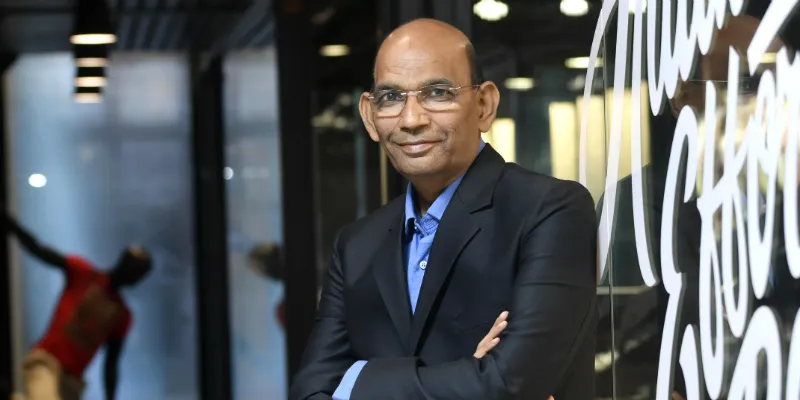These 3 Indian jeans brands dominate the market despite stiffest competition from international labels
In the times of international labels like Zara, Levis, and Forever 21, which have become the recent jeans wear choice for the Indian youth, here’s how these Indian jeans brands are grasping the huge market share and earning worth hundred crores despite humble beginnings.

The textile and garments industry in India is expected to reach $223 billion by 2021 from $137 billion in 2016. The entrepreneurs of this industry have made fashion a big business, capitalising on their customers’ preferences, understanding their needs, and desires. However, these businesses are also hit by international brands that find the Indian market as their dwelling, with a vast consumer base residing in the country.
Despite the paradigm shift in trends due to demanding customers who are slain by international labels especially for jeans wear, the Indian apparel brands are not only surviving but, growing in the stiffest competition from the industry.
In the times of international brands like Zara, Levis, and Forever 21, which have become the recent jeans wear choice for the Indian youth, there are Indian jeans labels that are grasping a big market share and earning worth hundred crores despite humble beginnings.
Spykar Lifestyle

Sanjay Vakharia, CEO, Spykar Lifestyle
Among Indian denim brands, Spykar Lifestyle stands out as one of the largest and fastest-growing brands. Launched in 1992 by Prasad Pabrekar, the brand, over the years, has been through thick and thin in the Indian market.
Mumbai-based Spykar started small. But over the years, it was shaped into becoming one of the larger players, thanks to Sanjay Vakharia, CEO, Spykar Lifestyle. It has now become a leading casual wear brand with a focus on hi-fashion denim. The home-grown brand now competes directly with its foreign counterparts.
Spykar products are currently available pan India across 250 exclusive outlets, in more than 1,000 multi-brand outlets, large format stores, and ecommerce sites. The brand offers casual top-wear, bottom-wear, and accessories like backpacks, flip-flops, perfumes, wallets, deodorants, etc.
“There is a lull in the economic environment at the moment, but Spykar has managed to up the ante for the brand and has achieved a phenomenal 20 percent growth in the current financial year. Spykar’s customer sales grew from Rs 460 crore in FY17 to Rs 550 crore in FY18,” says Sanjay.
This year, the company plans to touch Rs 700 crore and continue growing. Sanjay maintains that Spykar has sustained growth despite being affected by major challenges such as demonetisation and GST.
Killer Jeans

Kewalchand Jain, Chairman and MD, KKCL
Back in 1989, Mumbai-based businessman, Kewalchand Jain decided to take a gamble on jeanswear. At that time, he was running his family’s garment business and wanted to start making jeans. Kewalchand told himself he wanted to build an Indian denim brand and make Indians proud of wearing these jeans.
This was the inspiration behind Killer Jeans. Selecting the name to represent the rebellious nature of youth, Kewalchand launched the brand despite anticipating heavy competition from international brands such as Levis, Pepe Jeans, and Wrangler.
So how was Killer Jeans unique? Kewalchand says,
“I believed that a brand should never sell its products on discount. Thus, Killer Jeans would be a full-price brand.”
This means Kewalchand envisioned a model where Killer Jeans would not offer discounts on any current or fresh inventory. Now that heavy discounting is the norm, this full-price model seems counter-intuitive.
Kewalchand, explaining the logic behind the full price model, says,
"We didn’t want to dilute our brand position by giving discounts. Thus, we priced our products at reasonable prices and sell them at full price, rather than overpricing them and offering major discounts.”
He maintains that selling at full price ensures brand loyalty and higher profits. In 1992, he started Kewal Kiran Clothing Ltd (KKCL) – an institution that would be the parent company for Killer Jeans. This would allow him to launch other brands and follow a similar, full-price model.
Over the years, KKCL has launched clothing brands such as Easies, Integriti, LawmanPg3, and also acquired Desi Belle, a women’s wear brand. KKCL raked in Rs 456 crore turnover in 2018, with Killer Jeans accounting for 53 percent of this amount (roughly Rs 242 crore). It also raised Rs 80 crore through an IPO in 2006.
Mufti

Kamal Khushlani, Founder and Managing Director, MUFTI
In 1992, when Indian fashion trends were seeing a shift, Kamal Khushlani identified a gap in how menswear was evolving.
“There were various styles in jeans, right from bootcut to bellbottom. However, every brand was offering a similar pattern at almost the same quality level. I wanted to come up with a product that was a progressive fashion for Indian men,” he tells SMBStory.
Kamal always had a keen interest in the fashion retail business. However, hailing from a middle-class background, and losing his father at the age of 19, he didn’t have the money to capitalise on his vision. He even worked with a video cassette company to make his ends meet.
To finally start building on his dream, he borrowed Rs 10,000 from a maternal aunt and plunged into his entrepreneurial journey. He started by launching the ‘Mr & Mr’ shirt company in 1992, manufacturing and retailing shirts for men.
While the business was running fine, Kamal felt that he wasn’t using his business skills to the optimum in an industry that still had enough vacuum to fill.
A self-taught fashion designer, Kamal had a firm belief in creating a wave of culture and fashion originating in India, to be embraced worldwide. With this vision, he launched Mufti single-handedly in 1998.
Kamal started Mufti single-handedly. He used to carry kilos of fabric on his bike and drop it off at the workshop and then come back to collect the finished products for sale. For years, he did it all by himself, recycling the money he earned from his business.
In the 2000s, Mufti gained prominence, expanding from exclusive brand outlets to large and multi-brand outlets, and large-format stores. Kamal says the reason behind its expansion lies in the love and acceptance of his customers. He adds,
“Our customers love us. They love the new style, fit, cut, and comfort we have to offer. The older brands were continuing with the old patterns of fashion, while we introduced new styles. That differentiated us from other Indian brands.”
Kamal claims Mufti was one of the first brands to introduce stretch jeans for men. He explains that denim is a rigid fabric and stretchable fabric was used in jeans for women then. When he introduced it in the men’s category, it was well-received in the market.
Mufti manufactures a range of over 500 products every season including jeans, trousers, shorts, athleisure, jackets, t-shirts, and more. The company rakes in a turnover of Rs 395 crore.
(Edited by Suman Singh)



![[Year in review 2019] Top 10 SME entrepreneurs who have built sustainable businesses](https://images.yourstory.com/cs/21/0a385fc03e6011e999df3d1594bbde2c/SMBStoriesTOP10stories1575399674997png?fm=png&auto=format&h=100&w=100&crop=entropy&fit=crop)





